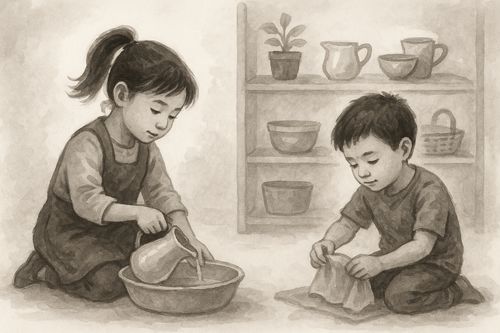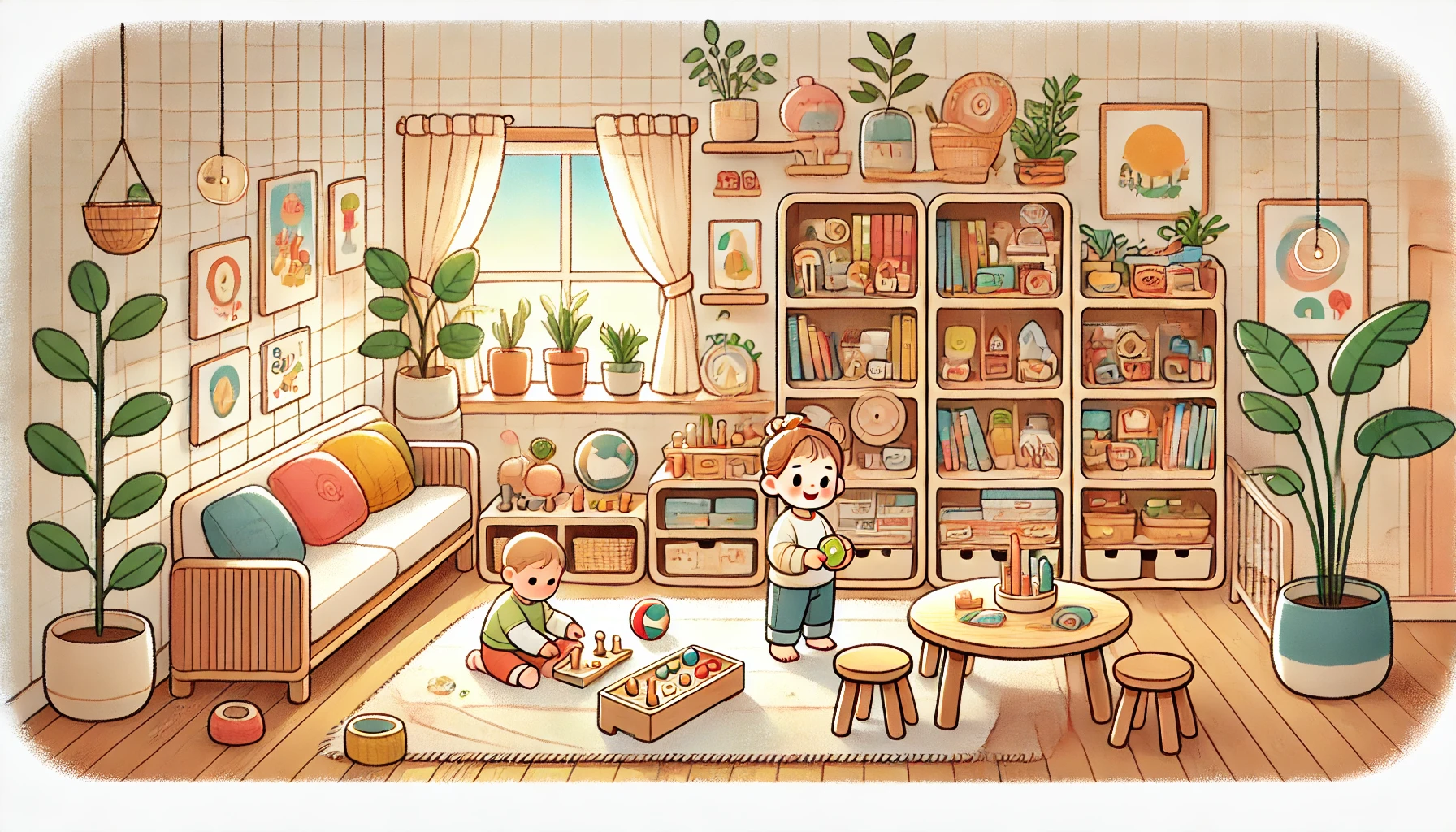
Why Practical Life Skills Are the Heart of Montessori Learning
When parents first walk into a Montessori classroom, they often notice something unexpected. Children are pouring water into cups, buttoning shirts on a dressing frame, sweeping the floor, or arranging flowers in a vase. These are not just chores or busywork. They are carefully chosen activities that build the foundation for a child’s independence, confidence, and future learning.
At Language Garden Montessori, we see practical life work as the heartbeat of the classroom. Here is why.
1. Building Independence
Practical life activities give children real responsibility for their environment. Whether it is preparing a snack, caring for a plant, or setting the table, they learn they are capable of meaningful contributions. Over time, these small acts foster a sense of ownership and pride.
At home connection: Invite your child to help with daily tasks. Give them real tools that fit their hands, such as a small broom or child-sized watering can.
2. Developing Focus and Concentration
Montessori practical life work is purposeful and often repetitive. A child polishing a small silver pitcher is not just cleaning it. They are refining their attention, practicing order, and working through each step with care. These skills transfer directly to academic learning.
At home connection: Offer activities that have a clear beginning, middle, and end. This helps your child learn to complete tasks with focus.
3. Strengthening Fine and Gross Motor Skills
Pouring beans into a jar, using tongs to move small objects, or carrying a tray across the room all require coordination and control. These movements prepare the hand for writing and the body for larger, more complex actions.
At home connection: Encourage activities that use both hands together, such as kneading dough, folding laundry, or peeling fruit.
4. Cultivating Care for Others and the Environment
In practical life work, children learn to care not only for themselves but also for the people and spaces around them. They practice grace and courtesy, share materials, and learn how their actions affect others.
At home connection: Model caring behavior, such as holding the door for someone or tidying up after a meal. Invite your child to join you in these acts.
5. Laying the Foundation for Academic Success
The order, precision, and persistence developed in practical life activities prepare children for more abstract work in math, language, and science. A child who has learned to follow multi-step processes in pouring water is better equipped to follow the steps in solving a math problem.
At home connection: Recognize that “real work” at home is not separate from learning. It is a vital part of it.
Final Thought Practical life skills are not extras in the Montessori classroom. They are central to everything we do. By mastering everyday tasks, children gain the tools they need for academic learning, social connection, and a lifelong love of work.
At Language Garden Montessori, we value these small, purposeful acts because we know they build the strong and capable adults of tomorrow.






























